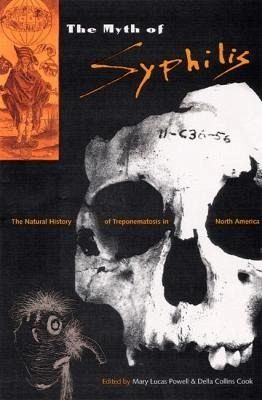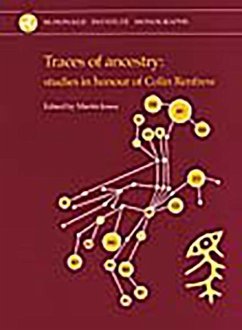
The Myth of Syphilis
The Natural History of Treponematosis in North America
Herausgeber: Powell, Mary Lucas; Cook, Della Collins
Versandkostenfrei!
Versandfertig in über 4 Wochen
79,99 €
inkl. MwSt.

PAYBACK Punkte
40 °P sammeln!
Exploring the long-standing question of the origins of syphilis, this book proposes a new understanding of the dynamic interactions of disease and culture in the New World. It brings together a complete picture of the diverse pathological evidence of a bacterial disease--"treponematosis--"manifest in the North American archaeological record at the time of Christopher Columbus's first journey, and it presents a strong argument against the earlier identification of modern venereal syphilis with indigenous North American treponemal disease. For almost 500 years, native North Americans have been b...
Exploring the long-standing question of the origins of syphilis, this book proposes a new understanding of the dynamic interactions of disease and culture in the New World. It brings together a complete picture of the diverse pathological evidence of a bacterial disease--"treponematosis--"manifest in the North American archaeological record at the time of Christopher Columbus's first journey, and it presents a strong argument against the earlier identification of modern venereal syphilis with indigenous North American treponemal disease. For almost 500 years, native North Americans have been blamed for "giving the world syphilis" and by implication accused of sexual immorality. Contributors to this volume identify and investigate the origins and various manifestations of all ranges of treponemal diseases across the continent and show that the true picture of disease evolution is both different and far more interesting than past scholarship suggests. They summarize current archaeological and historical information from a variety of regions and times, both before and after 1492 and consider closely the specific question of whether evidence exists for the presence of the venereal form of treponemal disease that would be equivalent to the venereal syphilis that ravaged 16th-century Europe. Their investigation challenges the unequivocal identification of all pre-Columbian treponemal disease as venereal syphilis.












